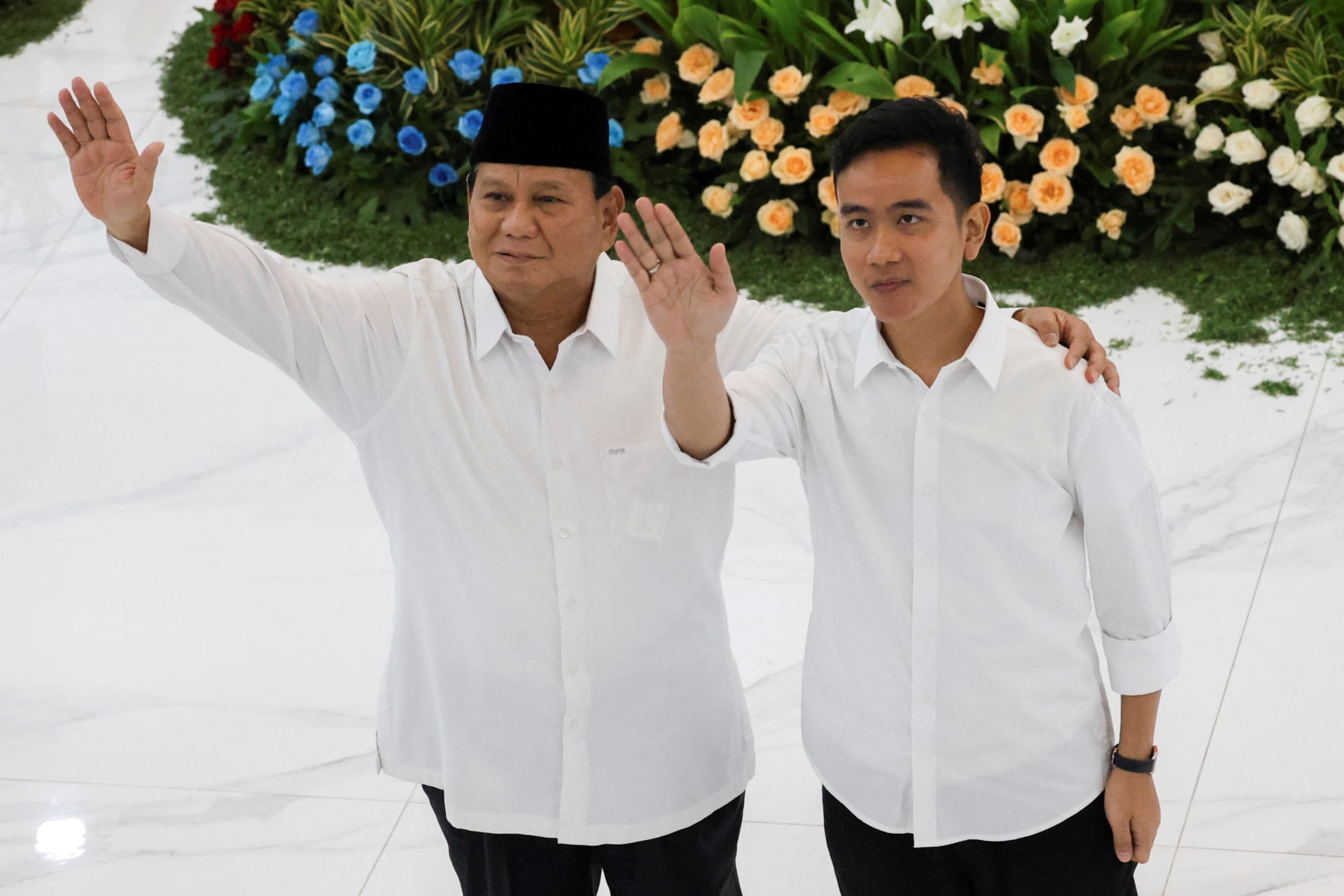Early Signs From President-Elect Prabowo Subianto Are Worrying
As President-Elect, Prabowo Subianto, widely accused of past rights abuses, is already showing signs that he may further damage Indonesia’s fragile democracy.

By experts and staff
- Published
Experts
![]() By Joshua KurlantzickSenior Fellow for Southeast Asia and South Asia
By Joshua KurlantzickSenior Fellow for Southeast Asia and South Asia
After being elected president earlier this spring, in an overwhelming victory powered in part by the endorsement of popular prior president Joko “Jokowi” Widodo (who was rewarded by having his unqualified son become Prabowo’s vice president), the notoriously mercurial Prabowo has given several signs of how he plans to govern as president. While some are benign, others are highly worrying for Indonesian democracy, which already was degraded in the latter half of the Jokowi presidency.
To be sure, Prabowo plans to introduce new massive social welfare programs, like free lunches for all Indonesian students, which could have a significant impact on ordinary Indonesians, if Prabowo can find the money to pay for them. One way to do so would be to cancel the Jokowi-initiated, and vastly expensive, plans to move the national capital from Jakarta to Nusantara. Prabowo is going to be inaugurated there later in the year, but he has never seemed as supportive of the move as Jokowi, though he dutifully agreed to back it on the campaign trail, probably to please Jokowi.
And Prabowo also seemingly seeks to maintain Indonesia’s balanced foreign policy – though whether that is possible as U.S-China tensions rise remains debatable. He did make his first overseas visit as president-elect to China, but he also, despite his history of rights violations and a visa ban by the United States, seems increasingly comfortable with growing security ties with Washington.
However, several statements and proposed plans already released by Prabowo, who for his entire adult life has fought against democracy (in the Suharto era) and then loudly complained and denigrated democracy (in the post-Suharto era), signify real worries about his commitment to upholding Indonesia’s fragile but still vibrant democracy.
According to Benar News, Prabowo has already released a very public, and forceful statement warning all of his political opponents not to “interfere” in his administration and to just join with him in governing. Benar News reported that Prabowo said, “It’s fine for those who don’t wish to collaborate. If there are any who prefer to be onlookers from the sidelines, they are welcome to do so…However, if you choose not to cooperate, please do not interfere.”
Since democracy requires a vibrant opposition and civil society and media willingness to “interfere” in the working of the ruling government by opposing measures in parliament, questioning the government’s plans and tactics, or simply exposing all manner of flaws among rulers, a warning not to “interfere,” coming from a man who stands credibly accused of major rights violations in the past, is fairly chilling.
What’s more, Prabowo is gaining allies in parliament, including parties that had supported his presidential election rivals. He could garner a majority in parliament, which would put him in an even stronger position to push forward any plans, even if they are regressive, with less opposition pushback.
As Asia Sentinel noted, just the fact that Prabowo is so quickly trying to gain an overwhelming majority in parliament sparks worries, given Prabowo’s past, that he would use a massive majority to undermine democratic institutions. The move, Asia Sentinel noted, is “raising concerns that Prabowo is seeking to build a national coalition so big it is unassailable by a legislative opposition and nullifying the necessary checks and balances of democracy.”
These are not encouraging signs, already emerging before Prabowo is even president, that the health of Indonesian democracy will, at the least, stay stable under its new president. In a region where democracy itself has faltered badly in recent decades, a major blow to Indonesian democracy, still one of the freest in the region, would be catastrophic for regional freedom as well.
